Songs in the Key of Cinema is a bi-weekly look at the use of songs in film and how that music fits within the context of the film as a whole and a place where we’ll cover the moments in cinema that were music to our eyes and ears.
I might have been eight or nine years old when I first saw the sequence completely out of context. A group of hoodlums, dressed in a disturbing mix of immaculate clothing and animal masks, break into the home of a writer. They rape his wife and force him to watch the proceedings. All the while, the leader of the pack gleefully sings “Singin’ in the Rain”, adding a greater sense of terror to the event. As a child, this scene from Stanley Kubrick’s A Clockwork Orange (1971) scarred me deeply, as I had an invested love in musicals. But what exactly was Kubrick saying using this song during such a horrific scene? That Alex DeLarge’s lust for torture transcended even the most joyful tunes?
The Song
Few songs are as unapologetically joyful as “Singin’ in the Rain”, a track that was originally written by Arthur Freed and Nancio Herb Brown for the 1929 stage revue, The Hollywood Music Box Revue. At that time it was first performed by Doris Eaton Travis, but it would become a standard very quickly, including a rendition performed by Cliff Edwards (a.k.a. Jiminy Cricket). However, it is best known as the title song to the 1952 film Singin’ in the Rain, directed by Gene Kelly and Stanley Donen, the film itself a jukebox musical. Saying that the song is now iconic seems, at best, an understatement. Kelly, in his dark suit strolling down the street as it pours, has become part of the cultural lexicon. The image of him hanging off of a lamp post in the street has been parodied, recreated and repurposed innumerable times. Seldom does a film’s sequence become such a representation of happiness all by itself.
The Scene
It is important to note, then, two scenes: one from the original film, Singin’ in the Rain, and the one in which the song is reappropriated in A Clockwork Orange. In Singin’ in the Rain, Don Lockwood’s (Gene Kelly) is twofold: he has solved the problem of how to turn his upcoming film The Dueling Cavalier into a musical in order to fit with the new “talkies” trend by changing it to The Dancing Cavalier. Meanwhile he has fallen in love with the talented, modest, occasionally sharp-tongued Kathy Selden (Debbie Reynolds). As is customary in a musical, he lets his heart sing. In A Clockwork Orange, Alex (Malcolm McDowell) and his cronies break into the house of F. Alexander, rapes his wife and forces him to watch, while ironically singing the song a capella.
TRIGGER WARNING: RAPE
The Analysis
The song itself posits that the singer is so deeply in love, so enthralled with this new infatuation of theirs that not even rain can bring down their day. It’s an extremely saccharine sentiment, and it fits within the context of the original film, which could easily be described as “joy on celluloid”. What happens when you subvert that joy and turn it into something painful? This, apparently:
Alex, the young juvenile delinquent of Anthony Burgess’s original novel and Kubrick’s adaptation, is a sociopath in the most literal terms, lacking even the slightest bit of empathy for the people he terrorizes. He beats up a homeless person, vandalizes buildings, etc. The rape, though, seems like a step above his other actions precisely because of the song he sings while doing committing it.
“Singin’ in the Rain” is so deeply rooted in everything that Alex does not understand. His vocalization of it is a horrific piece of irony. His actions are the very antithesis of the song: a battle between enthralling adoration and sickening psychosis. For those who had seen and loved Singin’ in the Rain prior to A Clockwork Orange, it seemed especially affecting. That scene is one of the best examples of Alex at his work, destroying something that other people love. This is not only with regard to the song itself, but also the young woman he assaults and violates.
Fascinatingly, Kubrick’s methodology is, as usual, meticulously used to illustrate such chaos within the scene. Before the boys arrive, the camera tracks left to right in the writer’s house. This short dolly shot gives the air of calmness and order, no doubt inspiring Wes Anderson’s hyper-idiosyncratic aesthetic. Once Alex and his cronies arrive, the style switches to the frenetic handheld style, forcing an uncomfortable amount of intimacy and invasiveness upon the viewer. McDowell’s malevolent gaze stares the audience in the face with those icy blue eyes, forcing us to watch along with the poor writer.
Alex’s threshold for causing pain is seemingly unlimited given his apathy for the pain of others. But perhaps the most critical part of this scene is not necessarily that he is taking this lovely song and maniacally using it for his own will, but the fact that his ultimate goal is to cause pain and suffering. He is destroying joy. He is destroying love. He is coming down upon and destroying purity.
Water is often connected with baptismal purity, hence Singin’ in the Rain‘s ivory reputation. However, this woman’s sexual innocence, for the sake of argument, is being destroyed, but in a deliberately, viciously ironic way. Using that song in A Clockwork Orange recalls the purity of the chaste romance from the previous film. Maybe it shows in general how destructive rape can be to a person. The knowing disregard for the song’s intentions is perhaps what makes the film so chilling.
After watching the scene for the first time, I couldn’t sing that song, originally intended as enthralling and ebullient, for a month without flashing back to the rape scene. Kubrick’s A Clockwork Orange may feature one of the most disturbing scenes in cinema. There’s nothing “glorious” about it.

















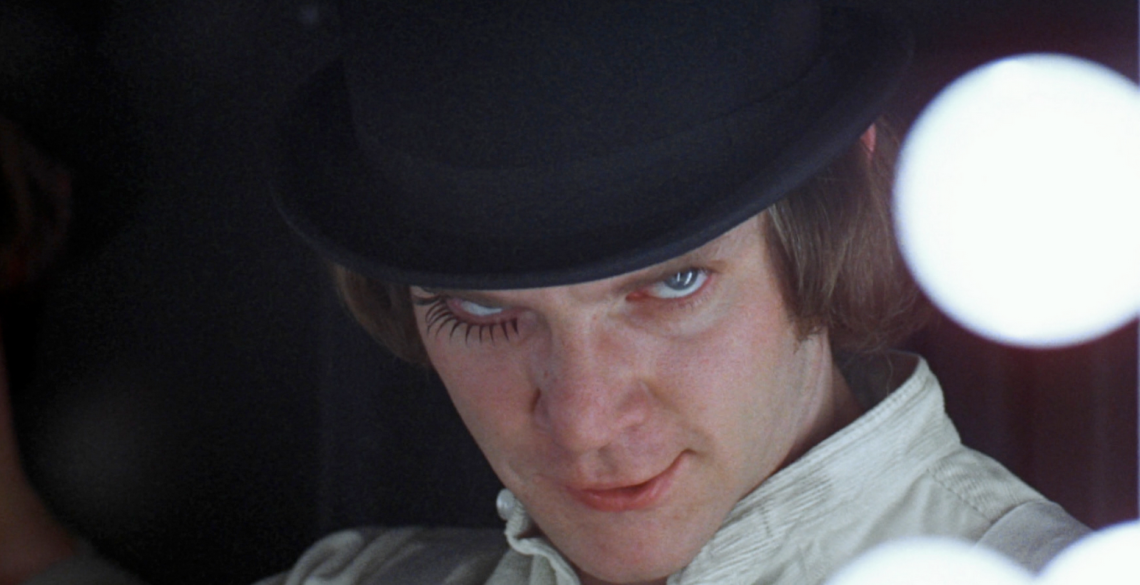
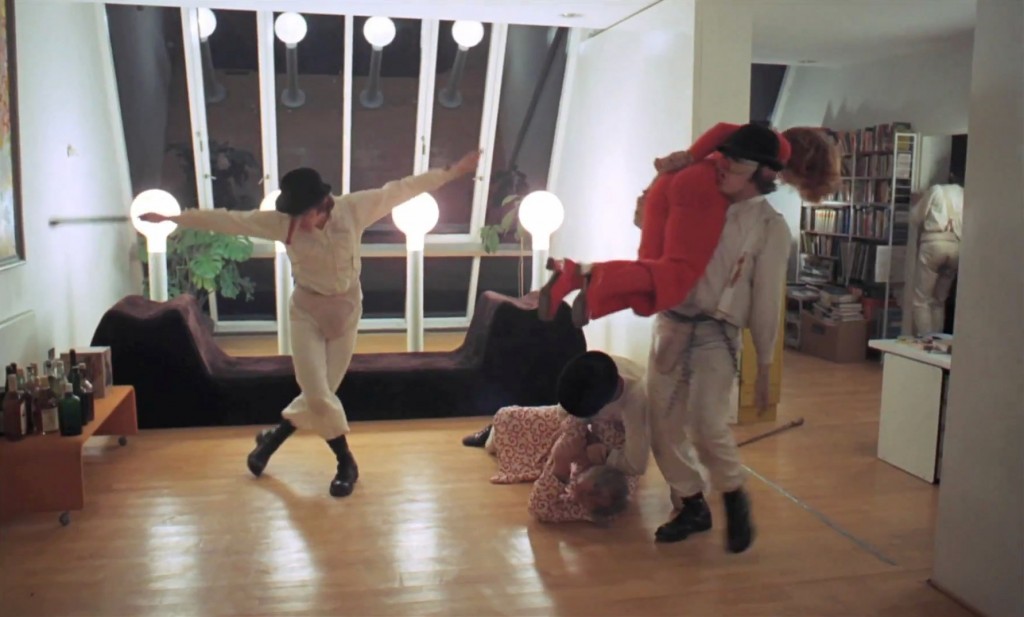
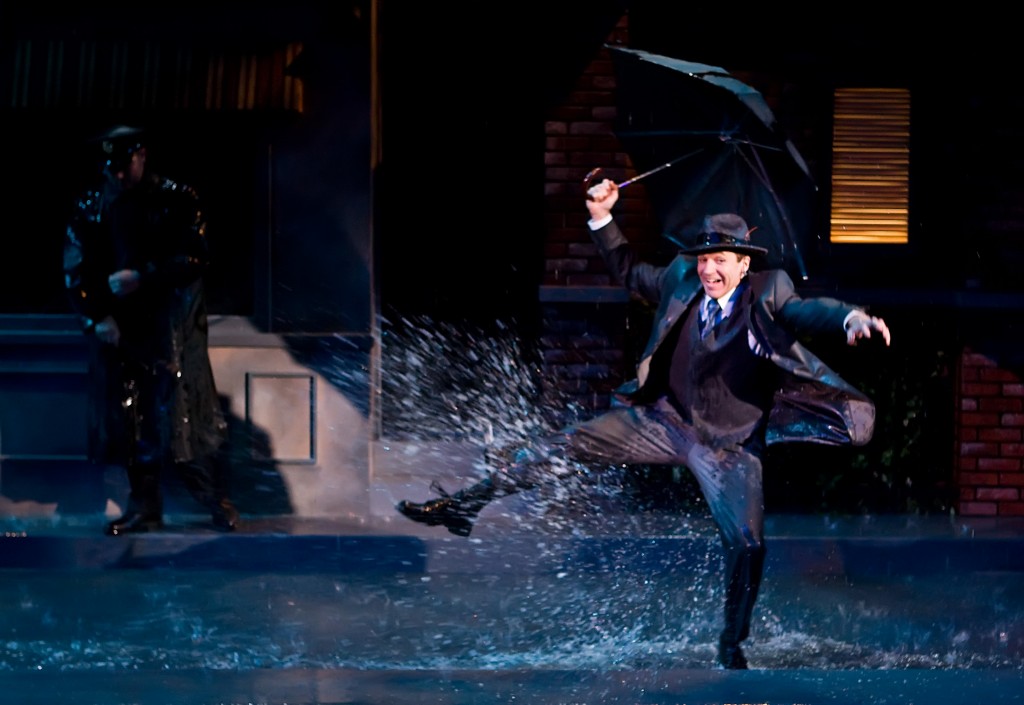
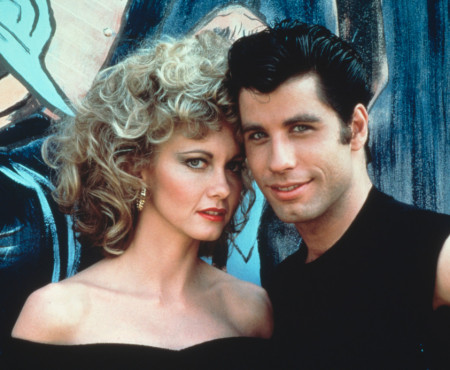
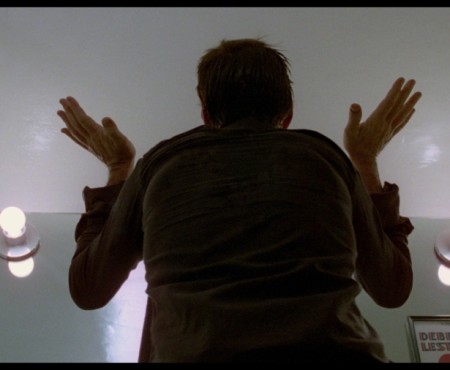
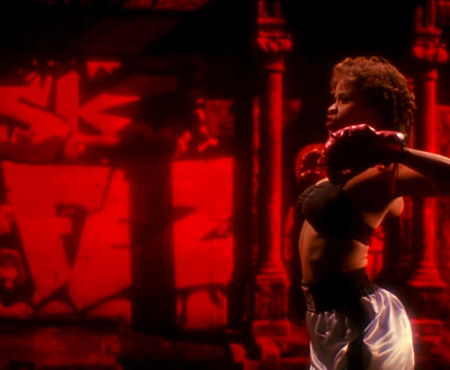
2 thoughts on “Inglorious Bastard: The Horror of “Singin’ in the Rain” and “A Clockwork Orange””
I haven’t seen the rape scene uncut. what does it show??? what does he do to her that’s so bad? the version I’ve seen isn’t anything disturbing. it’s more funny to me. is the uncut version more graphic? I know alex is wearing that mask that looks like a cock…. does he rape her with it or something???
Actually, that wasn’t Kubrick. Malcolm MacDowell just started singing it as an improvised idea. I’m afraid it wasn’t a deep symbol thought up by Kubrick, but merely an idea on the part of the actor to make the scene more disturbing.